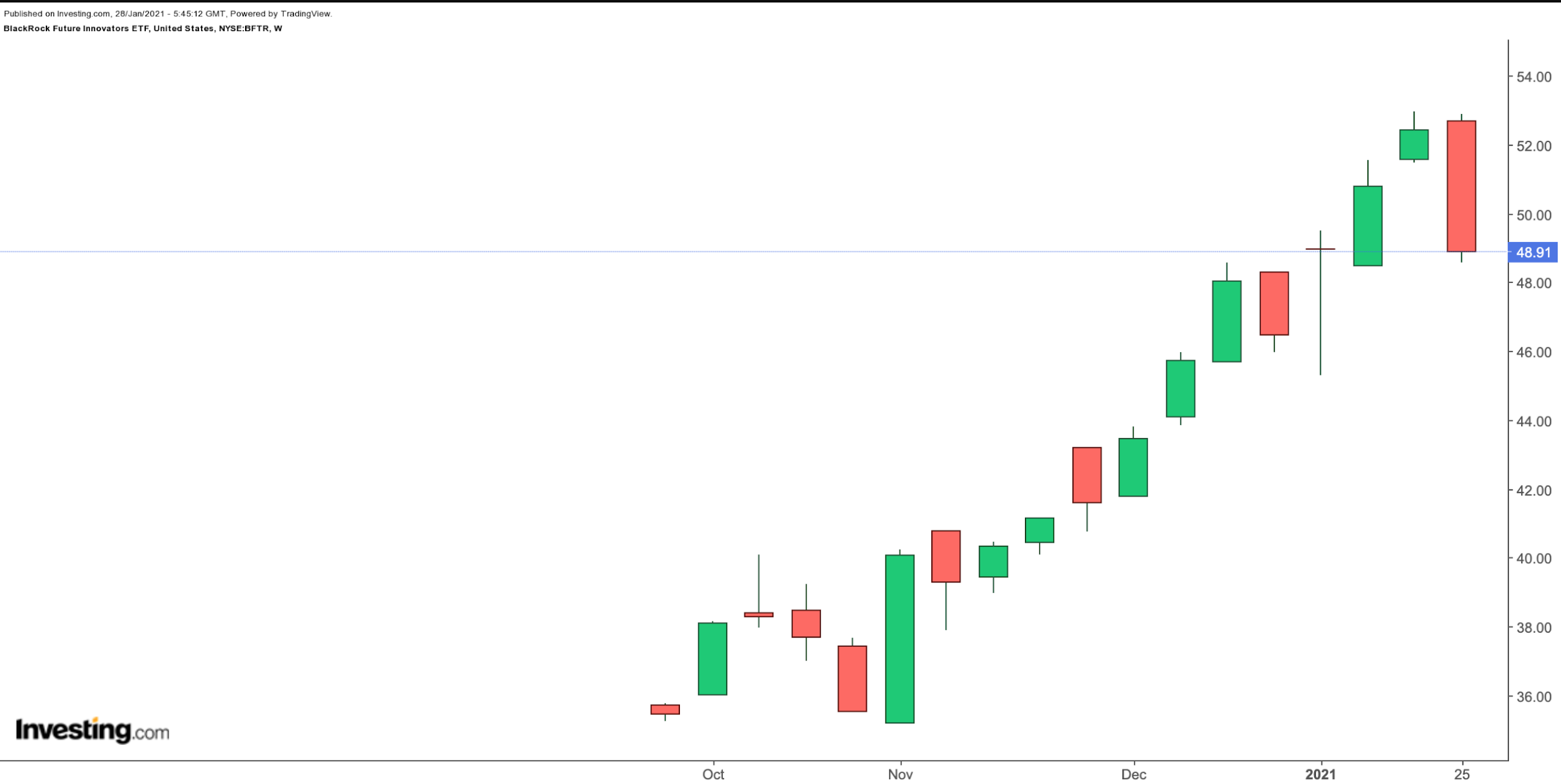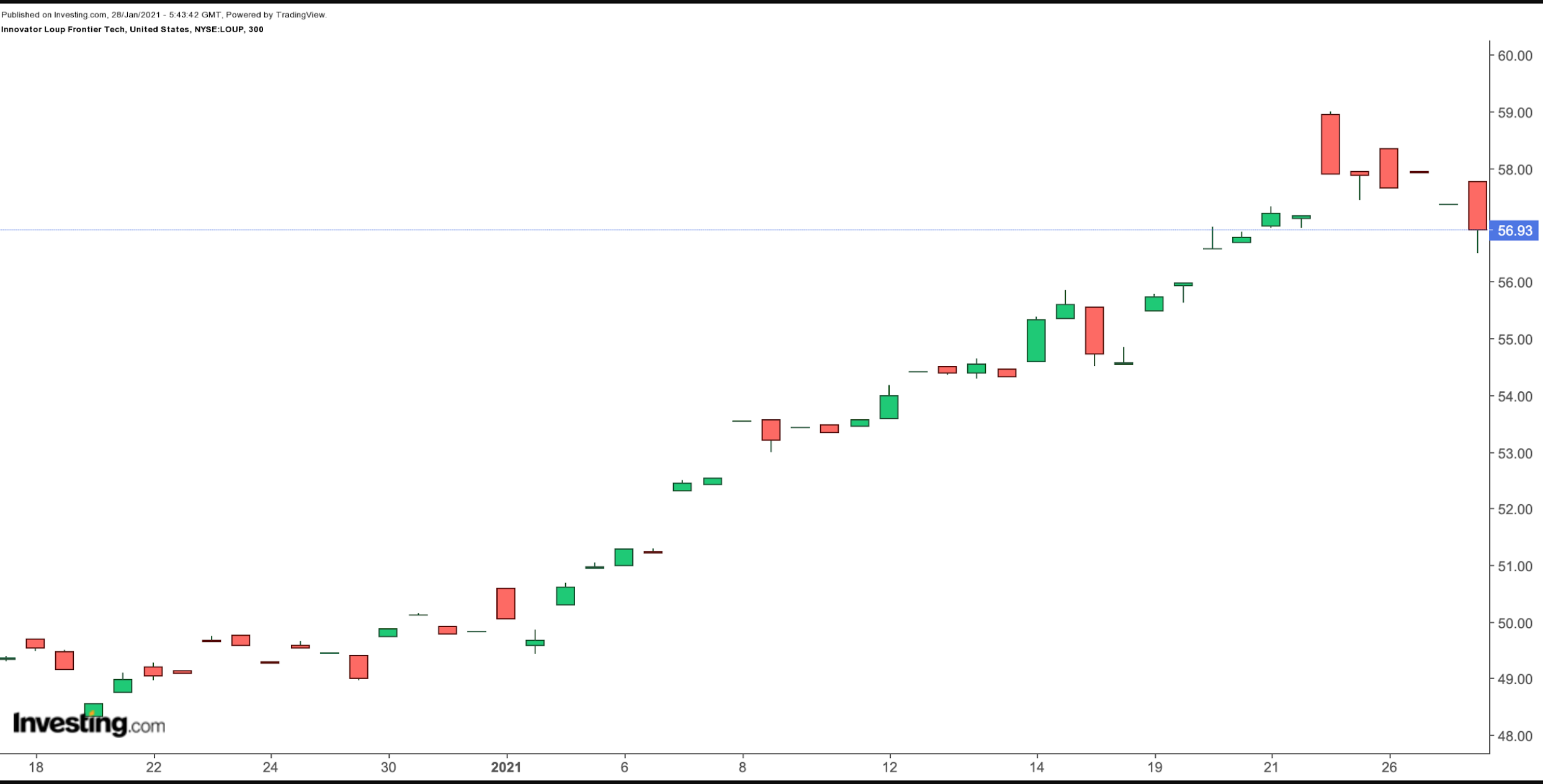Innovation comes in many forms. The Organization for Economic Co-operation and Development (OECD) defines innovation as “the implementation of a new or significantly improved product (good or service), or process, a new marketing method, or a new organizational method in business practices, workplace organization or external relations.”
Innovation might begin with an idea, sometimes a simple one.
Research led by Bas Hofstra of Stanford University highlights:
"Innovation drives scientific progress. Innovation propels science into uncharted territories and expands humanity’s understanding of the natural and social world."
In the 1990s, Clayton M. Christensen of Harvard University coined the term “disruptive innovation.”
Securities markets in the U.S. and globally give investors access to many innovative companies, some of which have also been hailed as disruptors. Investing in innovation can help supercharge any long-term portfolios.
Morgan Stanley suggests:
"COVID-19 and the impact of social distancing may become the ultimate tech disrupter, driving investment and digitalization innovations that could outlast the pandemic.”
In fact, since the early days of the pandemic, technology companies have been in focus, providing tailwinds to the returns in broader indices.
With that information, here are two exchange-traded funds (ETFs) that focus on innovation.
1. BlackRock Future Innovators ETF
Current Price: $48.91
52-Week Range: $35.22 - $53.07
Dividend Yield: N/A
Expense Ratio: 0.8%
The Blackrock Future Innovators ETF (NYSE:BFTR) seeks long-term capital appreciation by investing in innovative companies. The fund's focus is small-cap and mid-cap businesses. It is an actively-managed fund, whereby managers target industries they believe could impact the future of the global economy.

BFTR, which tracks the Russell 2500 Growth Index, holds 62 stocks. It is a small new fund that started trading in September 2020 and has almost $12 million under management.
Information Technology and Health Care sectors have the highest weighting, each with around 30%, followed by Discretionary stocks (15.60%), Industrials (11.00%), and Consumer Staples (5.53%).
Holdings include Arizona-based provider of law enforcement technology solutions Axon (NASDAQ:AXON), which is also known for its Taser electroshock weapons; North Carolina-headquartered Phreesia (NYSE:PHR), which offers customized patient intake software solutions to health-care organizations; online car-buying platform Vroom (NASDAQ:VRM); Massachusetts-based Entegris (NASDAQ:ENTG), which supplies advanced materials and process solutions for the tech sector; and California-headquartered biotechnology group 10X Genomics (NASDAQ:TXG), which designs gene sequencing technology; are the leading names in the fund.
Since its inception, BFTR has returned about 38%. In other words, the proverbial $1,000 invested in the fund then would now be worth around $1,380.
As we are in the midst of a busy earnings season, investors want to get a better appreciation of how management of the darlings of Wall Street see 2021 shaping up. Therefore, they should be ready for increased volatility with potentially a downward bias in broader markets. As a result, BFTR could also come under pressure in the short-run. However, the fund’s investment proposition is solid. Therefore, any decline of 5%-7% from the current levels would improve the margins of safety for buy-and-hold investors.
2. Innovator Loup Frontier Tech ETF
Current Price: $56.93
52-Week Range: $17.75 - $59.02
Dividend Yield: N/A
Expense Ratio: 0.7%
The Innovator Loup Frontier Tech ETF (NYSE:LOUP) provides exposure to companies that are at the forefront of the developments in artificial intelligence (AI), robotics, autonomous vehicles and virtual reality.

LOUP, which has 30 stocks, tracks the returns of the Loup Frontier Tech Index. It started trading in July 2018 and has about $16 million under management, making it a relatively small fund.
Information Technology (64.58%), Industrials (17.04%), Consumer Discretionary (13.08%), Communication Services (5.30%) are the sectors represented in the fund. At present, more than 45% of the fund is in the top 10 stocks.
Chinese language Internet search provider Baidu (NASDAQ:BIDU), which has been investing heavily in AI technology, Axon; China-based operator of Huya (NYSE:HUYA); Canada-headquartered BlackBerry (NYSE:BB), which provides security software and services to enterprises and governments; and automaker Ford (NYSE:F) lead the names in the roster.
About 52% of the companies come from the U.S., followed by China (12.81%), Japan (9.97%), Canada (5.48%), Taiwan (3.63%) and Austria (2.77%). The fund is rebalanced quarterly.
LOUP has returned more than 102% in the past year and hit an all-time high in recent days. Those investors that want global exposure might consider buying the dips in the fund.
